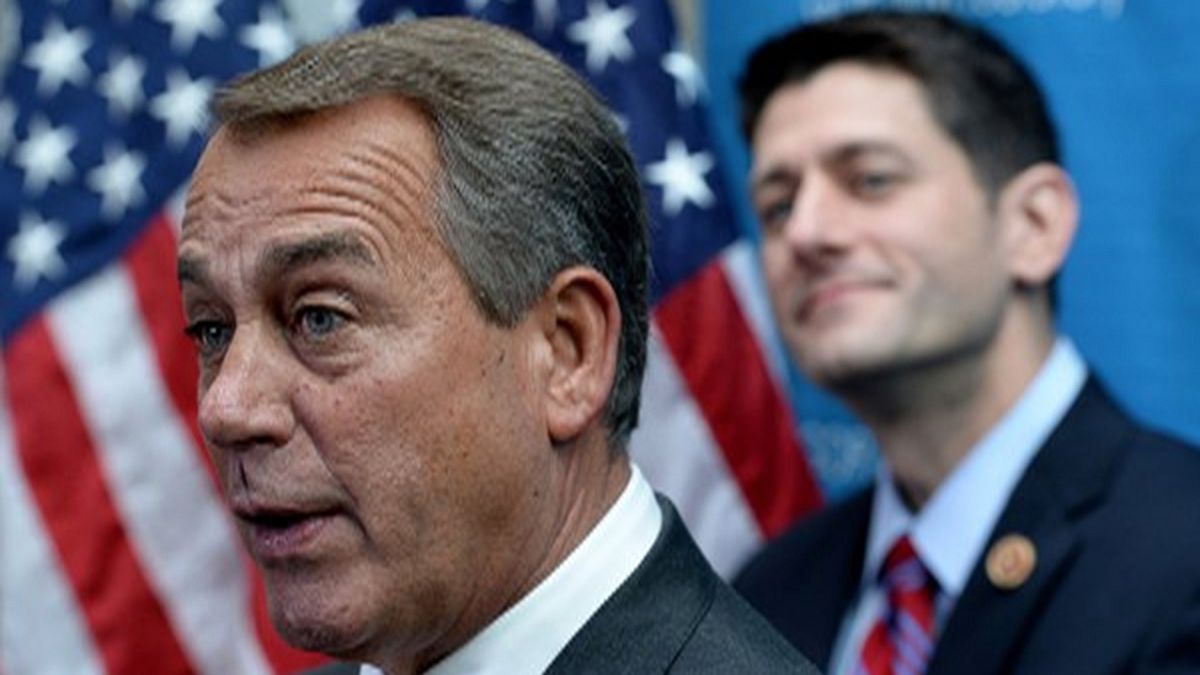John Boehner, the Republican Speaker of the US House of Representatives, usually is a self-contained veteran in the political battles in Congress. But when asked in a press conference about conservative groups within Boehner’s own party over the bipartisan budget deal, he almost exploded.
“You mean the groups that came out and opposed it before they ever saw it?” Boehner asked the reporter. “They are using our members and they are using the American people for their own goals”, he blurted out. “This is ridiculous!”
In other words Boehner was telling some of his Republican friends and outside conservative organizations to get lost. Just less than 48 hours after the two lead negotiators of the deal, Senator Pat Murray for the Democrats and Congressman Paul Ryan for the Republicans, the gloves are off and the daggers are sharpened in the party of Lincoln.
What happened? After months of negotiations, the two parties in Congress did what people’s representatives do around the world: they found a compromise. The $85 billion deal was praised in political pundits in Washington not for its creativity, but for the fact that it came into existence, a deal simply designed to avert another government shutdown.
The deal would reduce the deficit by $23 billion over ten years without raising taxes.
The proposal, though, has drawn the ire of conservatives who say that Republicans should not be giving up ground to Democrats on the previously agreed to spending cuts.
The deal calls on Congress to set aside $1.012 trillion in discretionary spending for the Defense Department and other federal agencies in fiscal year 2014 and $1.014 trillion for fiscal year 2015 and restores $63 in spending cuts.
If passed by both chambers, it is going to be the first regular federal budget in the biggest economy of the world in three years. Neither side got much of what was on their respective pre-Christmas wish list, as lawmakers reached agreement by jettisoning everything consequential.
It does nothing to address the nation’s voracious social security system, as the Washington Post remarked, it doesn’t change the inefficient and illogical tax code and it doesn’t extend employment benefits, something President Barack Obama is particularly fighting for.
And yet, right-wingers in the tea party-infested Republican caucuses in the House and the Senate immediately came out of the gate criticizing the bipartisan deal as a violation of core principles of what they believe is sound conservative policy.
Kentucky Senator Rand Paul, a likely presidential contender in 2016, slammed the agreement as “shameful” and a “huge mistake”. In a statement he said: “I cannot support a budget that raises taxes and never balances, nor can I support a deal that does nothing to reduce our nation’s $17.3 trillion debt.”
Another presidential hopeful, Senator Marco Rubio of Florida, criticized the budget for making it harder for Americans to achieve the American dream, suggesting that the agreement would be a lethal burden for future generations. And Senator Tom Coburn of Oklahoma unequivocally declared: “It’s not anything I can support.”
To all his intra-party opponents, Ryan on Thursday only had one message: Read the bill and get back to me, he said on MSNBC. He also reminded them that Republicans only control “one third of the so-called power structure in Washington”, while the White House and the Senate are controlled by the Democrats.
The intra-party battle over the budget is just the latest iteration of the tea party-versus-establishment war that has rocked the Republicans since the 2010 elections and thwarted their efforts to retake the majority.
Recent polls suggest that with favorability rating of 32 percent – a slight improvement from an all-time low in October – the Republican Party remains hugely unpopular. Hence the conservative attacks on the party “establishment” – and hence the establishment’s resistance to political positions that are considered sure losers at the ballot box.
